Philharmonia Orchestra, Muti, Royal Festival Hall
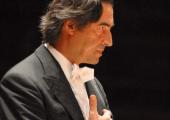


For scalpel-sharp dissection of the most vapid parts of Hollywood/LA life, told with low-budget digital flexibility that itself critiques studio indulgences, British director Bernard Rose is your man. He hit the note most viscerally in Ivansxtc a decade ago with a story of the drug-induced implosion of one of the city’s top agenting talents. As parallels with a real-life career melt-down were all too obvious to the in-crowd, sourcing to the Tolstoy story “The Death of Ivan Ilyich” may have crept in as a cover-up.

If Beethoven’s Third Symphony Eroica was the seismic upheaval, not just for Beethoven but for the entire symphonic movement, then the Second Symphony was most certainly the pre-shock. And we can be precise about the moment that Beethoven blows the Haydn model right out of the water and glimpses the far horizon of his brave new world: it’s the extended coda of the first movement where a devious harmonic shift sets collision course for the rip-roaring climax in which the trumpets turn wilful dissonance into exultancy.
18th-century manners, 21st-century instruments - the best of both worlds or a clear conflict of purpose? One would hardly expect a period specialist of Sir John Eliot Gardiner’s calibre and London’s most dynamic orchestra, the LSO, to be citing irreconcilable differences – and last night they didn’t. Their accounts of Beethoven’s first and last symphonies were, to say the least, explosive. But they were a good deal more, too, and the Ninth Symphony might well have startled, certainly thrilled, even Beethoven.
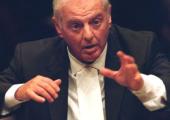
The returns queue gets longer and so does the wait – considerably longer than the 69 minutes of programmed music in this the second of the Daniel Barenboim Beethoven/Schoenberg series. But what a satisfying two–course meal it was: Schoenberg’s “transfigured night” of desire and confession, Verklärte Nacht, and Beethoven’s grandest piano concerto, No 5, “The Emperor”.
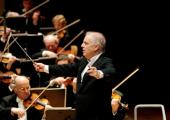
Anyone who can sell out four concerts of Beethoven and Schoenberg, even if it's only half-scary Schoenberg, surely looms large in the public imagination. Daniel Barenboim is a great humanitarian figure, and has been a thought-provoking interpreter of the classical and romantic piano repertoire for nearly 60 years, so it's not surprising that half of London wants to hear him in the Beethoven concertos. As a conductor, his natural element is earth; less so air, wind and fire.
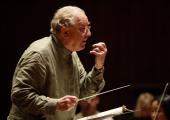
A continuing series celebrating musicians' birthdays.
16 December 1899: Noel Coward, sharing a birthday with Beethoven, an early English rapper of the silk polka dot dressing gown and cigarette holder school.
{youtube width="400" height="300"}vdEnxNog56E{/youtube}
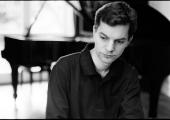
Much like Beethoven’s Piano Sonata in G, Op 79, with which he started the programme, I’ll get straight to the point. Till Fellner is a very good pianist. To demonstrate this, I’d like to jump to the last sonata of five we heard in this all-Beethoven programme last night: the Piano Sonata in E flat, Op 7. When you look at this music on the page, you could easily see this piece becoming a bumptious triplet-fest of mind-numbing proportions. When it is in the capable and stylish hands of someone like Fellner, it turns into an artful musical argument, with unexpected turns at every corner and moments of gentle filigree that belie the technique and musicality beneath.
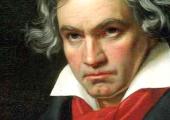
Early on in Phil Grabsky's documentary In Search of Beethoven (out today on DVD), handy fortepiano player and Ludwig van-lookalike Ronald Brautigam starts screwing up a section of Beethoven's very first, unpublished piano concerto. "If I concentrate on playing it," he laughs nervously, his hands covering his reddening face, "I might be able to do it." Brautigam is not just screwing up for our amusement. He's making a valuable point.